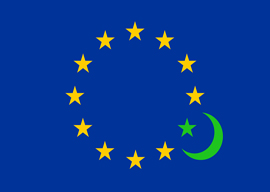
December 18, 2017

Source: Bigstock
Fascism was more pragmatic, however, allowing people to remain in civic and military society on merit. The Gramscian march through the institutions seen in the USSR and contemporary Turkey was not undertaken to the same degree by Fascist states. Continuity with pre-Nazi Germany both bubbled up in the form of plots against Hitler—Rommel is taken as a case in point—and subsequently made de-Nazification a storied process, tainting civic actors like the conductor Wilhelm Furtwängler. Passive cooperation had been accepted in the hierarchy; whereas for Islamist and Communist states, it was a source of suspicion. Hence the purges.
Fourth: The totality of social transformation mandated by Islamism and Communism means they tend to come to power by revolution rather than plebiscite. These are self-rooted ideologies that see no role for democracy. Indeed, they prefer to come to power by revolution, not by vote, if only to avoid the awkward notion that the people can remove them by the same means. Because the social transformations they seek then turn out to be impossible, they then remain frozen in a state of “permanent revolution.” Both typically proffer the excuse that their failures are not rooted in too much application of the ideology but too little, that it’s “never been done properly” (reread V.S. Naipaul’s Among the Believers for a reminder of the Islamic version of this trope). If failure is down to insufficient purity, it also drives the vicious cycle of judicial murder.
Albeit by tapping into the darkest currents of humanity, 20th-century Fascism did see a role for democracy. Unlike their Marxist and Islamist counterparts, Fascist regimes targeted election rather than revolution as a means to power (although subsequently changed their national constitutions). Hence the phrase “Revolutionary Fascism” has little currency, whereas Revolutionary Marxism and Islamism are standard. Moreover, both share a Hydra-like quality, morphing and dissembling as they converge on the ultimate revolutionary goal.
Perhaps, as the modern left waltzes ever closer to Islamists, a formulation like “Islamo-Stalinism” is simply more truth than it can bear. Their shared self-rootedness and super-political dislike of freedom—underwritten by the quiet agreement that “Western society is the enemy”—are siren calls to the disappointed fellow traveler of the 1960s. Like the soft left’s unholy marriage with global corporatism, the two sides appear to have made eye contact across the table. For all it’s un-historicism, perhaps the phrase “Islamofascism” should therefore remain on the books, if only to shake the left out of its stupefied alliance with Islamists.